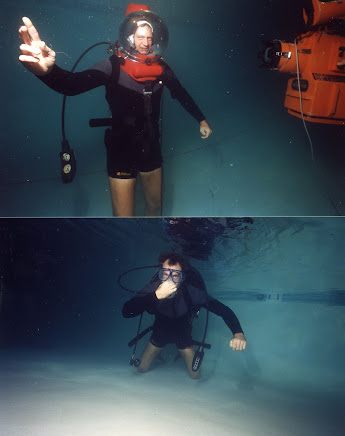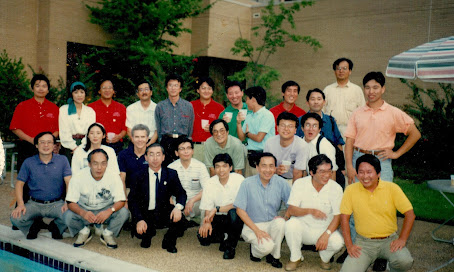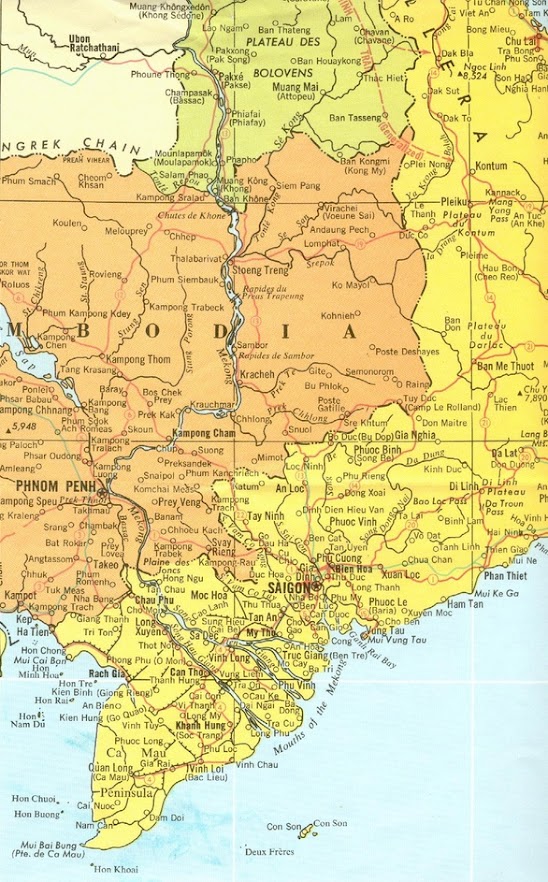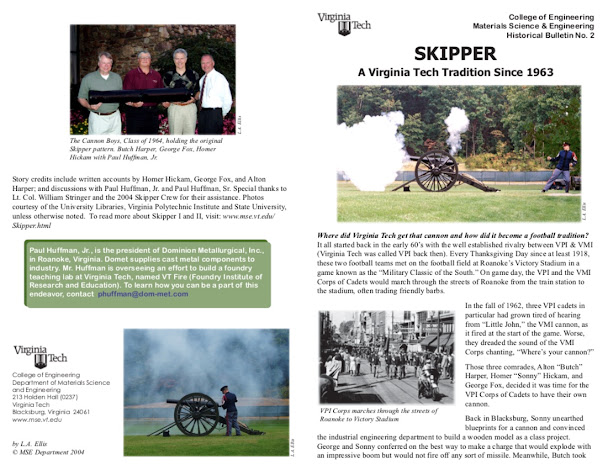A
few weeks after the 1968 Tet Offensive, I sat in the ruins of an old French
Foreign Legion barracks on a rusty folding chair I'd found somewhere and
contemplated the two dozen or so white rocks that served as tombstones in a rat
graveyard. After a hazardous thunder run from Pleiku that had mostly turned
into a miserable, painful crawl, the armored cav unit I was with had been
ordered to set up shop in the bleached and crumbling concrete ruins only to
discover they were overrun with giant rats. With no choice, the situation being
either them or us, we went on the offensive with our entrenching tools. So far,
we had been victorious against the rat brigade but not against the North
Vietnamese Army. Other than some remnants left behind to occasionally drop a
mortar round or a rocket on top of us, the NVA had given us the slip across the
Cambodian border beyond which, to our everlasting frustration, we were not
allowed to pursue.
My
pondering of the rat cemetery was interrupted when someone who had a radio
turned its volume up and, all of a sudden, Nancy Sinatra stopped singing about her
boots awalkin' and who should come on but our esteemed and wonderful President
Lyndon Baines Johnson who blathered on until at last he reached the part that
caused a lusty cheer to rise up from the American troops all around me. Ol' LBJ
was not going to run again. He'd given up. My thought was, "Well, what do
you know? They beat us." And they had, too. It took a few more years for
it all to come crashing down but when your commander-in-chief cuts and runs,
you have to know you're in a war that's not going to turn out well. No matter, we
whistled and clapped when he said he was as good as gone. By then, after all
the crap we'd gone through, we had come to detest him that much.
Last
year, I spent a good part of my time writing a memoir titled Don't Blow Yourself Up (DBYU). One of my
comments on writing Rocket Boys is
that in the process of writing it, I got a million dollars of psychotherapy I
don't even know I needed. Well, what do you know? I got another million's worth
writing this one, too, and part of that was dragging my brain back through the
Vietnam era. For some reason, I've got one of those memories that can put
myself right back into a situation decades ago and walk myself through it day
by day, sometimes hour by hour. For a memoir writer, that's a blessing. For a
normal person, however, I suspect it's a curse. Luckily, nobody ever accused me of
being entirely normal.

Besides recalling Vietnam and all the madness I witnessed or was part of in my year there, I also again accepted I was a veteran of a conflict where we won every
battle but lost the war and a lot of good Americans died or were maimed for no good result. Writing about that made fresh the sting and still does. And now, almost unbelievably, we have
bumbled our way to the same result in yet another war. Many if not most of our veterans of that war are hurting because they are left to wonder what all that hard,
bloody work, all that time and sacrifice, was about. In this, your Vietnam War brethren can certainly relate and maybe offer some helpful thoughts. At the end of
the part in DBYU where I came home from Vietnam, I wrote this:
After hooking a ride on a Chinook to Cam
Ranh Bay, I climbed aboard a passenger jet, a gold Braniff, and sat down where
they told me to sit down and flew to McChord Air Force Base and then was bused
to Fort Lewis, Washington, there to process and move on to wherever life took
me next. The flight back was nothing like the boisterous flight over. The men inside
sat quietly, spent. For my part, I looked down on the clouds over the Pacific
Ocean and dully watched them slide by. The next day, as I walked through the
airport in uniform, a young woman in tie-dye and bell bottoms spotted me,
hissed something, and gave me the finger while applying the F word in my
direction. I didn’t care. My whole life was in front of me and what I did with
it was up to me. She was on her own.
And
that was the point. I had done my duty. What anybody
else thought about it or me didn't matter. If I was going to have a good life,
I would have to make it so and the girl in the airport who thought herself superior to me and the others home from the war would have to do so as well. I wonder which of us had the better result. Yet, I also wrote this in the next chapter:
If you’d asked me how I was doing during
the decade after I came back from Vietnam, I would have wondered why you were
asking and would’ve probably said, “Well, I’m doing fine,” which would have
been a total lie even though I didn’t know it. Looking back now, I realize I
was actually completely and totally messed up and there’s not much else I can
add to that except it’s so.
When
Saigon fell in 1975, I was in San Diego going through the open water work that
would lead to gaining my scuba instructor's rating. By then, it was seven
years after I'd sat in that rat graveyard and realized the war was probably going to
end just like it did. Since then, there had been a lot of positive things that had happened
in my life. I'd lived in Puerto Rico, I had a good job with the Army Missile
Command in Huntsville, I had managed some success with free-lance writing, and
I was starting to do all the diving and research that would ultimately lead to
my first book Torpedo Junction. In other words, I had found positive things to do and be passionate about, things that allowed me to put Vietnam firmly in my rear view mirror. But
wars fought tend to stick with those who fight them and can come out in the
form of doubt and uncertainty. With that in mind, I would like to offer this advice to
our new veterans of a war fought well by its troops and lost poorly by its
leaders:
• It's OK to grieve for not only those who
died or were maimed but for your own time lost, the brutality you observed, and
the coarsening of your life's experience.
• It's OK to talk about the war's result to
anyone you think might understand, to get it off your chest, to express your
resentment of the leadership that allowed it to happen, and to rage a little
against the unfairness of it.
•
It's OK to be proud of what you accomplished, for how you served, and with whom
you served, and for the good things you learned that will make you a better
person, a more productive citizen to your country, and a leader within your
family and community.
•
It's OK to look at your country and the world through the clear eyes of someone
who has suffered failure through no fault of your own but now has the strength
and determination of a survivor.
AND:
•
It's OK to respect the enemy who won. You don't have to like them or what they
stand for but they showed up on
the battlefield and were tenacious. That deserves respect, however grudging.
BUT:
•
It's not OK to let the war take over your mind and affect your
outlook on the rest of your life. That is the most dangerous thing you can do.
AND:
• Don't let the people who lost the war continue to lead. Get involved. Serve in political office. And, this time, let your mantra be: Never Again.
I
wrote in DBYU:
After an invitation from the International
Institute of Education in 2008, we traveled to Vietnam to speak to students about
furthering their education. Remarkably and coincidentally, it turned out that
the Vietnamese version of Rocket Boys was published the same time we
were there. After traveling so far, I felt it necessary to go back to the old
battlefields in the Central Highlands to recall those days with such brave
men. There was hardly anything I recognized there, but I was so glad to see the
country at peace. Everywhere we went, we were treated with overwhelming love
and hospitality.
When
we were in Hanoi, I was invited to meet with Vietnamese writers and it turned
out most of them were veterans of the North Vietnamese Army. Although I didn't much want to talk about it, they did and I finally gave in. Over several hours
of sharing, we realized there was much we had in common, that we were, as one
of them said, "like chess pieces they moved around and swept off the board
any time they chose." Their leadership had often failed them, too, and, just as with most American Vietnam vets, they were wary of their own government and not a little bitter.
Finally,
one of them asked me, "What did you think of us?"
At that question, they all leaned forward on the other side of the table and I could tell this was gravely important to them. I
gave it some careful thought and then said, "We thought you were very
good. Very, very good." And they were, too.
That
answer earned me some smiles. They liked me saying that they were good soldiers a lot. But I didn't ask them what they thought of us because I didn't
care. We were American soldiers and no matter how bad our leaders were, we were still good. Very, very good.
And no matter how bad our leaders are now, that's still true.
Hang onto that.
And have a great life. You deserve it.
http://www.homerhickam.com


















































